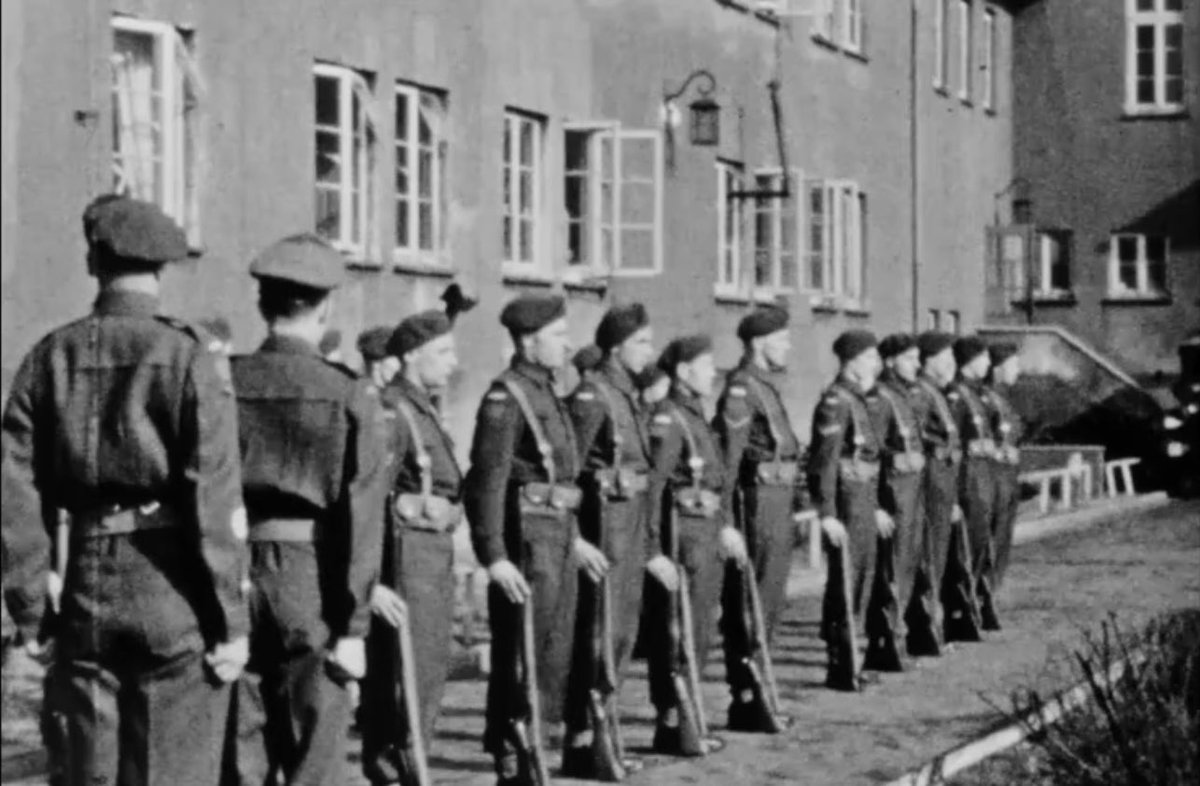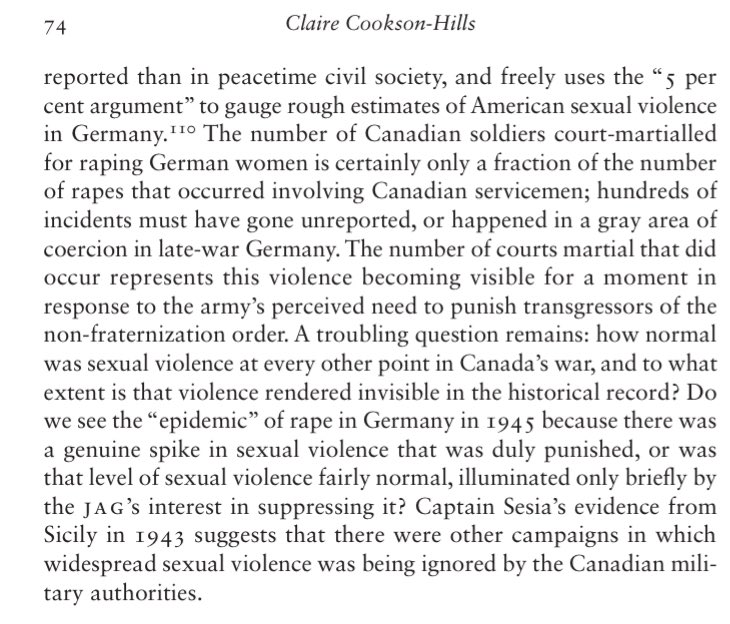To celebrate the release of #WhyWeFight @McGillQueensUP, I want to spotlight some of the work that’s contained in the volume. One of my favourites is “Sexual Violence as Motivation,” by Dr Claire Cookson-Hills. This is controversial stuff and a highlight of the volume (a thread).
Dr Cookson-Hills (disclosure: yes, she’s my partner) looks at sexual violence perpetrated by Canadian soldiers against civilians during the Second World War. She is looking in particular at the rape of German women at the end of the war during the Allied invasion and occupation.
Her work started with a research project on the Canadian Army courts martial index that she did for @jonathanfennell some years back. With his permission, this became an independent study of the wave of sexual attacks that followed the Canadian troops into Germany.
About fifty Canadian soldiers were courtmartialed for raping German women between 20 April and 10 May in the Lower Saxony area that was part of First Canadian Army’s area of occupation, centred on the town of Oldenburg.
Because rapists were (also) in violation of a draconian non-fraternization order intended to punish the people of Nazi Germany, the machinery of military justice was unleashed on them in a way that made normally under-reported crimes highly visible and documented.
Dr CCH writes: “Before April 1945, the Canadian military justice system rarely punished sexual violence against civilians, preferring to believe that the sex soldiers took part in was always consensual. The military hierarchy’s main concern was [venereal disease]...”
“...and most sexual violence and sex with prostitutes was dealt with at the unit level (beneath JAG notice) or not at all. Except when a rape became a gross breach of military discipline, the Canadian Army ... was uninterested in prosecuting aggressive soldiers for sex crimes.”
She draws upon additional evidence from the Sicilian campaign in 1943 to suggest that the lack of courts martial for rape did not necessarily mean rapes were not happening; rather, cases were not being reported, believed, or pursued by the authorities.
But for a brief moment in time, when the Cdr Army transitioned from liberation to conquest and occupation, those priorities shifted. Perpetrators were hunted down, survivors were listened to, and if a rape conviction could not be secured, a fraternization conviction usually could
What was behind this wave of sexual violence? Dr CCH studies many possibilities and finds a number of possible explanations from the literature unsatisfactory: genocide through rape, global issues of sexism, and plunder of both property and bodies as a formal reward system.
She instead focuses on more likely explanations: informal sexual reward, humiliation of the enemy, sexual revenge, opportunism, and a specifically hypersexualized military culture. She ties these to larger questions of motivation in war.
Dr Cookson-Hills has done an amazing and extremely difficult service to historians by analyzing these horrific incidents in depth. I am exceedingly proud to have her work included in this volume and to be able to showcase it here.

 Read on Twitter
Read on Twitter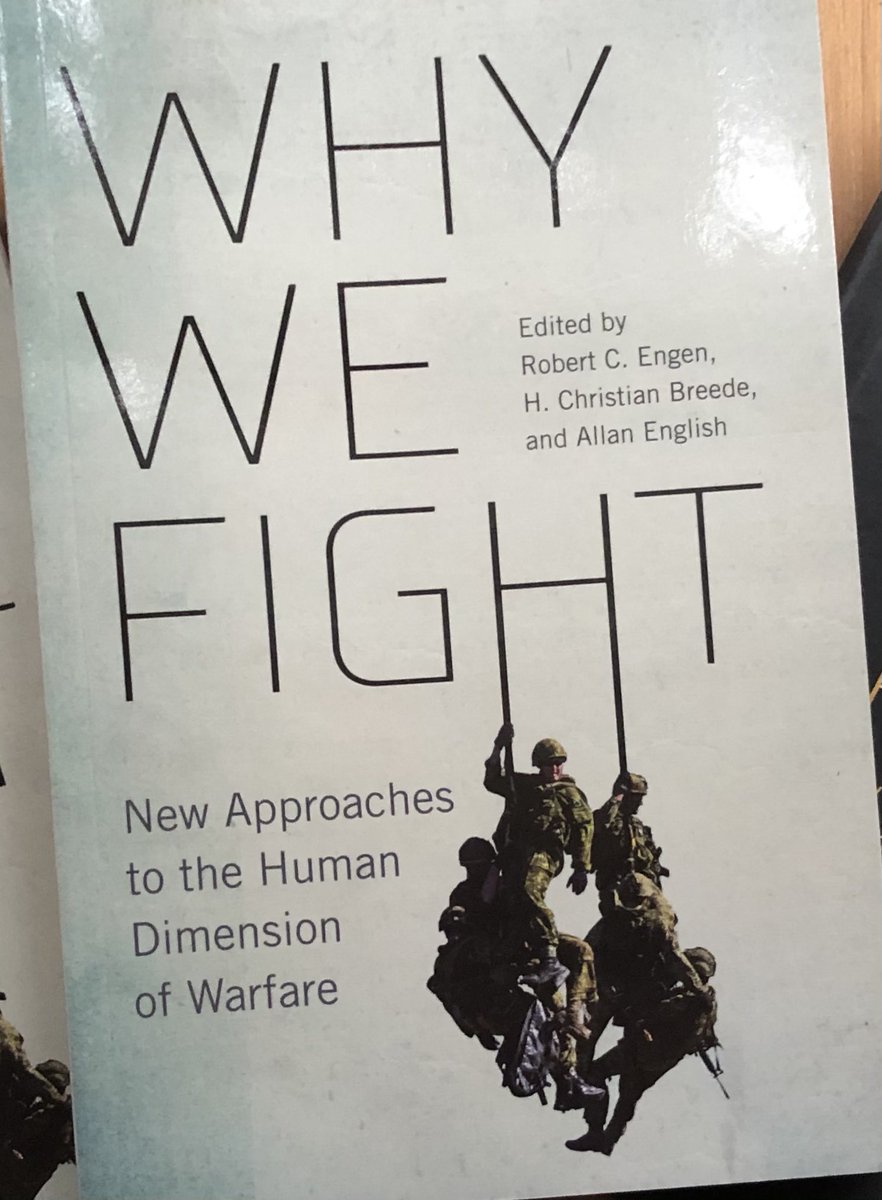
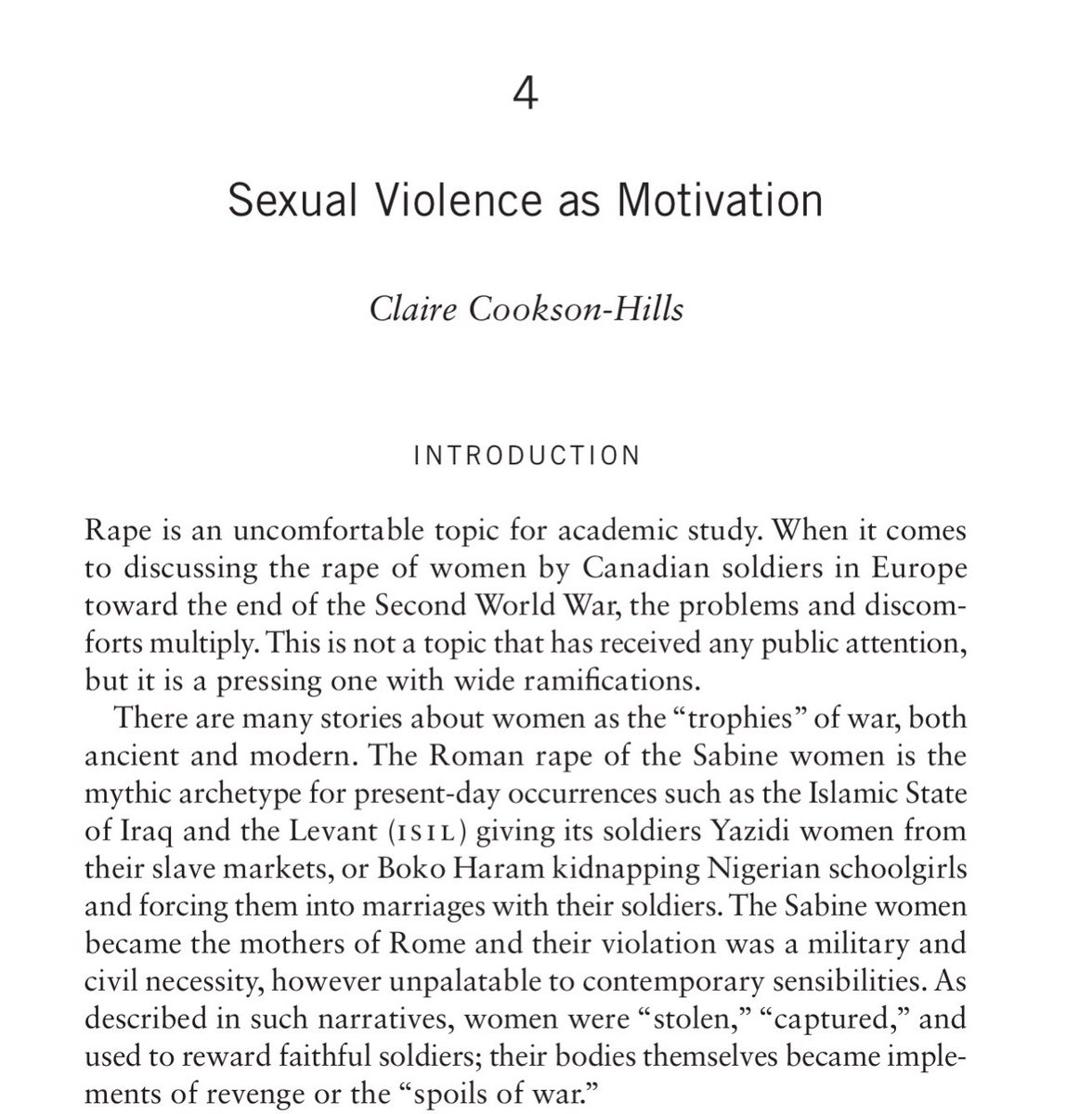
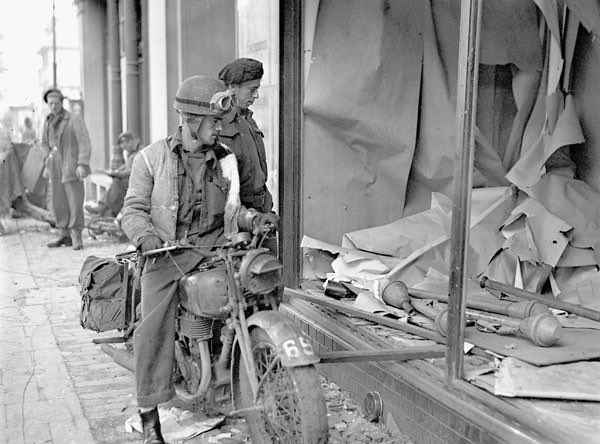
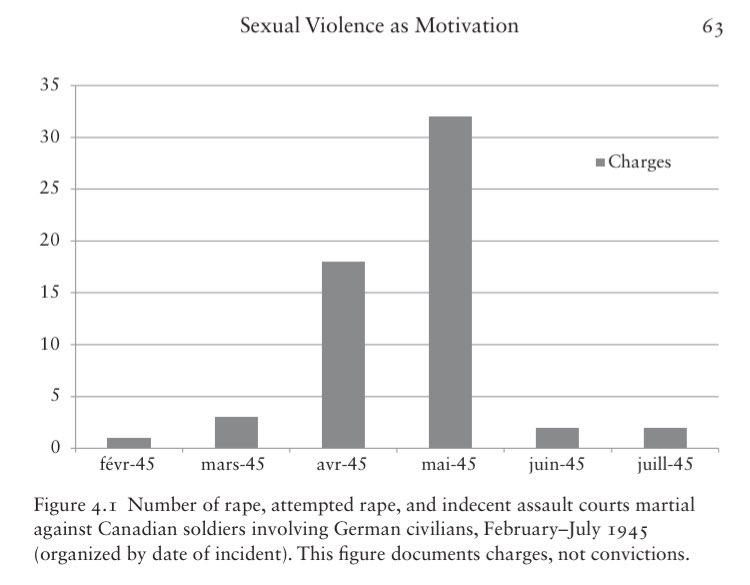
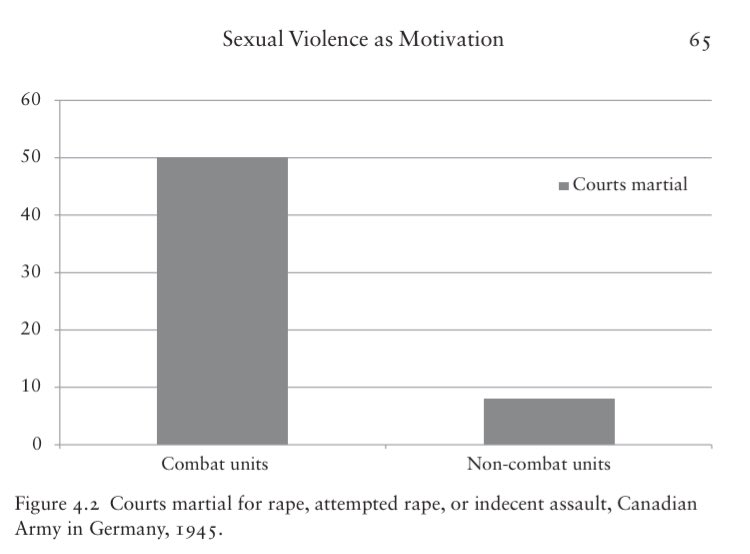
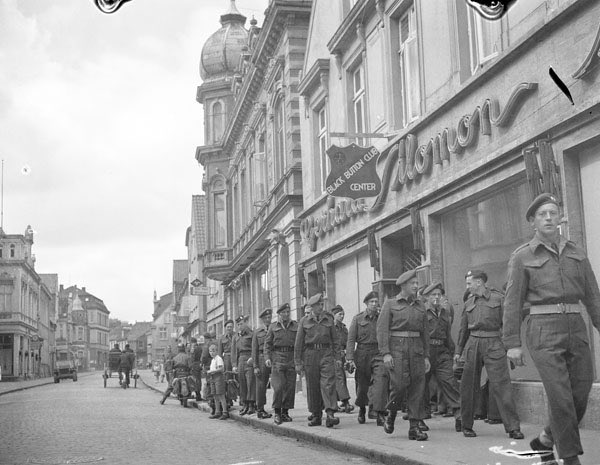
![Dr CCH writes: “Before April 1945, the Canadian military justice system rarely punished sexual violence against civilians, preferring to believe that the sex soldiers took part in was always consensual. The military hierarchy’s main concern was [venereal disease]...” Dr CCH writes: “Before April 1945, the Canadian military justice system rarely punished sexual violence against civilians, preferring to believe that the sex soldiers took part in was always consensual. The military hierarchy’s main concern was [venereal disease]...”](https://pbs.twimg.com/media/ErEpriLXUAIukH-.jpg)
